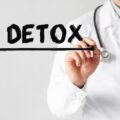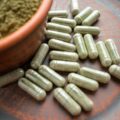Drug detoxification is an essential part of the recovery process. However, as drug abuse can result in addiction, withdrawal symptoms begin when the body withdraws from substances. Withdrawals are uncomfortable, performing a detox from drugs at home is the most comfortable option. Alternative drug detox centers are successful but they remove you from your entire life. Identifying professionals to make you drug detox at home safe is essential.
How To Complete an At-Home Drug Detox?
Detoxing at home can cause serious health repercussions, and so all risks must be considered before attempting it. Whether or not home detox is suitable for you depends on several factors, such as the drug you will be detoxing from.
Before starting the detoxification process, it is essential to speak to a licensed medical professional about your drug and alcohol use. They can provide information on how drugs affect the body and what happens during the withdrawal process.
Detoxing from drugs, such as benzodiazepines, cold turkey at home is never usually recommended as associated drug and alcohol withdrawal effects can cause life-threatening and dangerous withdrawal symptoms. You may also be advised against detoxing from opioid drugs at home as there have been cases of death due to severe dehydration and malnourishment.
Medically Supervised Drug Detox at Home
Also known as outpatient detox programs, there are alternatives to at-home detox. Most American addiction centers and treatment professionals advocate that the detoxification process should happen under the supervision of trained professionals within a treatment center. Although this is advised for many reasons, it is especially recommended so that your body’s response to substance abuse treatment can be monitored. If necessary, it also ensures that medical intervention and prescription medications can be provided if you experience severe withdrawal or medical complications.
Medically supervised detox can also include detox medications that relieve symptoms; however, this is optional. Although some worry that this essentially substitutes one drug for another, this is not the case. While some favor natural detox, medical drug detox can improve detox outcomes and enable people to focus more clearly on recovery and their long-term treatment plan.
Generally, medically supervised detox includes three steps:
- Evaluation – Medical professionals will first conduct an assessment to review your medical and health history, substance use, and recovery goals. During this step, you must be honest and reflective.
- Stabilization – This is when detoxification begins. If taking medication is the best option for you, you will be given a prescription, and your symptoms will be regularly monitored.
- Treatment options – Detox is seen as one of the first steps in recovery. Once you have completed this process, a treatment facility will suggest ongoing treatment, including group therapy and cognitive-behavioral therapy (CBT).
Managing Drug Withdrawal Symptoms
The most important thing to understand is that detox should never be attempted alone. Finding a licensed medical professional to support you is essential to your health and the success of the process. Trying to detox alone comes with a higher risk of relapse and significant health risks.
Finding someone to support at home as you detox can also help with the withdrawal symptoms.
Create a Support Network
Having a support network of family members or friends to help you progress through medical detox can ease the burden of withdrawal symptoms and offer you support for any mental health problems. However, before the detox process and withdrawal symptoms begin, it is important to set some boundaries.
Making a plan for what the person or people supporting you should or should not do during your outpatient detox program can relieve stress if things become tense. It can also be helpful to discuss each other’s expectations for the process and what to do in the case of a medical emergency. You may also want to consider setting limits for what will and will not be tolerated.
Eat a Balanced Diet
Eating a healthy balanced diet can reduce mood swings that are often experienced during drug and alcohol withdrawal. By ensuring you have plenty of healthy foods, such as fresh fruit, vegetables, oily fish, nuts, oats, and water, at home as you progress through detox, you may find it easier to cope with any withdrawal symptoms.
If you find it difficult to eat, it may be beneficial to talk to a doctor to see if you could benefit from taking vitamins.
Stay Hydrated
The United States National Academies of Sciences, Engineering, and Medicine (NASEM) states that you should drink an average of three liters of fluid per day. This equates to around fifteen cups of water for men and eleven cups for women.
It is crucial to remain hydrated during drug and alcohol detox, especially if you experience sickness. To replace any electrolytes lost in sweat, you could mix water with lemon juice and a pinch of salt and sugar.
For Those Supporting Someone As They Detox From Drugs at Home
If you are supporting someone as they detox from drugs at home, it may be beneficial to familiarize yourself with the substance they are detoxing from before treatment begins. This can provide a more comprehensive understanding of what the person is going through.
Furthermore, before detox commences, ensure that the person has sought advice from licensed medical professionals and guarantee they have approved the home detox approach and outlined a suggested program. It can also be helpful to discuss and understand the person’s personal goals, encourage them to make a note of the reasons they are detoxing, and talk about their goals for after treatment.
Supporting someone seeking addiction treatment can be challenging, so it is equally important that you take care of your mental health and well-being. If things become overwhelming for you, approach mental health services for support at any time.
Provide Emotional Support
During detox, it is common for an individual to experience anger, frustration, and a wealth of other symptoms. They may also feel like giving up if they find the process challenging. However, by reassuring and supporting them, they may find the strength to continue their recovery.
If the individual detoxing begins to experience severe withdrawal symptoms and questions why they are detoxing, remind them of their personal goals. It can also help to encourage them to reframe the way they think. Instead of focusing on the discomfort, motivate them to think of the withdrawal symptoms as a sign that toxins are leaving their body and remind them that there is hope beyond substance addiction.
Lapse and Relapse
Whether you are personally progressing through detox or supporting someone, it is important to remember that lapses and even relapses happen during detox. After all, it is an incredibly challenging process, and cravings can be powerful. Consuming drugs other than prescribed medication is not a reason to give up and stop the detox program.
Instead, you should see relapse as a temporary mistake. If a lapse arises, it can be helpful to discuss why it happened and what could be done to prevent another one.
Addiction Treatment After at Home Drug Detox
After completing a medical detox or at-home detox, it is important to complete a treatment program that addresses the causes of drug addiction to maintain sobriety. Treatment facilities can provide tailored treatment programs that include holistic mental health support. It can also be helpful to join support groups. Having emotional support is an essential part of recovery and aids alcohol and drug addiction treatment.
Contact us today to learn more.



 Call Us
Call Us
 877-845-8192
877-845-8192